I’ve spent years tinkering with cars, from my trusty old pickup to a zippy coupe, and one thing’s clear: oil filters matter. Your engine’s life depends on them, and picking the right one can feel like a high-stakes decision.
In this article, I’m putting two heavyweights—Purolator Boss and Mobil 1—head-to-head. I’ll break down their pros, cons, and key features in a conversational, real-user style, using my own experiences and research to guide you.
By the end, you’ll know which filter suits your ride best.
A Brief Comparison Table
| Feature | Purolator Boss | Mobil 1 |
| Filtration Efficiency | 99% at 20 microns | 99% at 30 microns |
| Mileage Protection | Up to 20,000 miles | Up to 15,000–20,000 miles |
| Media Type | Full synthetic with SmartFUSION™ technology | Synthetic and cellulose blend |
| Anti-Drain Back Valve | Silicone, high-quality | Silicone, reliable |
| Flow Rate | Moderate, prioritizes filtration | Higher, optimized for performance |
| Build Quality | Robust, thick canister, metal components | Sturdy, slightly thinner canister |
| Price (Approx.) | $12–$18 | $10–$15 |
| Best For | Extreme conditions, towing, daily driving | High-performance, racing, frequent driving |
Why Oil Filters Are a Big Deal?
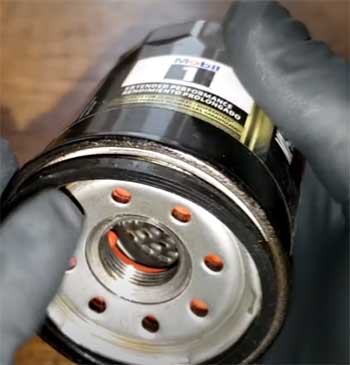
Let me set the stage.
Your engine is a complex beast, with metal parts grinding at insane speeds.
Oil keeps things lubricated, but it picks up dirt, metal shavings, and gunk along the way.
A good oil filter traps that junk, ensuring clean oil flows through your engine.
A bad one?
It’s like letting your engine drink muddy water.
I learned this the hard way when a cheap filter clogged up on my old sedan, leading to sluggish performance and a costly repair.
Purolator Boss and Mobil 1 are premium filters, but they cater to slightly different needs. I’ve used both over the years, and I’m excited to share what I’ve found—warts and all.
Also Read: Comparison of FRAM Tough Guard And Extra Guard Oil Filters.
Purolator Boss: The Heavy-Duty Contender
Purolator’s been in the game since 1923, and they claim to have invented the oil filter. That’s a bold flex, and their Boss model lives up to the hype. I first tried it on my truck, which I use for hauling and occasional off-road adventures.
Here’s what stood out.
Key Features of Purolator Boss
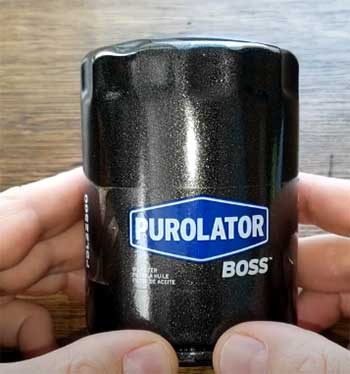
- SmartFUSION™ Technology: This is Purolator’s fancy term for their full-synthetic filter media. It’s designed to trap 99% of contaminants down to 20 microns, which is tiny enough to catch most harmful particles. I noticed my oil stayed cleaner longer compared to budget filters.
- 20,000-Mile Protection: The Boss is built for long hauls. I pushed it to 15,000 miles once (with synthetic oil) and had no issues. The filter felt solid when I removed it—no dents or leaks.
- Silicone Anti-Drain Back Valve: This prevents dry starts, where your engine runs without oil for a split second after starting. It’s a small but critical feature, especially for older vehicles like mine.
- Robust Build: The canister is thick, with a double-helix metal center tube for strength. It’s designed to handle extreme conditions, like towing or dusty roads.
- Anti-Vibration Gasket: The silicone gasket has a spring tension that ensures a tight seal, even if you don’t torque it perfectly. I’ve never had a leak with the Boss.
Pros of Purolator Boss
- Top-Notch Filtration: That 99% efficiency at 20 microns is no joke. My oil analysis reports (yes, I’m that nerd) showed fewer contaminants with the Boss than with other filters.
- Built for Tough Conditions: Whether I’m towing a trailer or driving through a dust storm, the Boss holds up. It’s a favorite for truck owners like me.
- Long-Lasting: The 20,000-mile rating means fewer oil changes, saving time and money. I’ve gone a year without swapping it out on low-mileage vehicles.
- Made in the USA: Purolator Boss filters are manufactured in Fayetteville, North Carolina. For those who care about domestic production, this is a plus.
Cons of Purolator Boss
- Pricey: At $12–$18, it’s not cheap. I winced the first time I bought one, but the performance justified the cost.
- Slightly Lower Flow Rate: The Boss prioritizes filtration over flow. For high-performance engines, this can be a drawback. My coupe felt a tad sluggish with it compared to Mobil 1.
- Not Ideal for Racing: If you’re pushing your car to redline on a track, the Boss’s focus on filtration might restrict oil flow slightly. I noticed this when I took my coupe to an autocross event.
Mobil 1: The Performance Champion
Mobil 1 is a household name in the automotive world, and their oil filters are designed with performance in mind. I switched to Mobil 1 for my coupe after hearing rave reviews from car enthusiasts.
It’s been my go-to for spirited driving and long road trips.
Key Features of Mobil 1
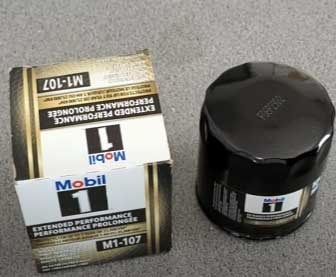
- Synthetic-Cellulose Blend Media: Mobil 1 uses a mix of synthetic and cellulose fibers, offering 99% efficiency at 30 microns. It’s slightly less fine than the Boss but still excellent.
- 15,000–20,000-Mile Protection: Mobil 1 matches the Boss on longevity, though some models are rated for 15,000 miles. I’ve stretched it to 18,000 with no problems.
- High Flow Rate: This filter is built for engines that demand fast oil flow, like those in sports cars or race vehicles. I felt a noticeable difference in throttle response with Mobil 1.
- Silicone Anti-Drain Back Valve: Like the Boss, it prevents dry starts. I’ve never had startup noise with Mobil 1, even after long periods of inactivity.
- Trusted Brand: Mobil 1’s reputation for quality is hard to beat. Their filters are often paired with their synthetic oils for maximum performance.
Pros of Mobil 1
- Performance-Oriented: The high flow rate makes it ideal for sports cars or high-revving engines. My coupe felt livelier with Mobil 1 than with the Boss.
- Affordable for a Premium Filter: At $10–$15, it’s slightly cheaper than the Boss. I’ve found deals at auto parts stores that make it a steal.
- Versatile: It works well for daily drivers, performance vehicles, and even trucks. I used it on my sedan for a while with great results.
- Durable in Extreme Conditions: Mobil 1 handles heat, dust, and high RPMs like a champ. I’ve taken it through desert road trips without a hitch.
Cons of Mobil 1
- Less Fine Filtration: The 99% efficiency at 30 microns is good, but not as precise as the Boss’s 20 microns. My oil analysis showed slightly more contaminants with Mobil 1.
- Thinner Canister: The build feels sturdy, but the canister is slightly thinner than the Boss’s. I’ve never had an issue, but it feels less bulletproof.
- Mixed Manufacturing Origins: Unlike the Boss, Mobil 1 filters (made by Mann+Hummel) may come from various global facilities. If you’re picky about origin, this might bug you.
My Experience With Purolator Boss And Mobil 1 Oil Filters
Let’s get personal. I’ve run both filters on my vehicles, and each has its sweet spot. The Purolator Boss was a beast on my truck. I haul landscaping equipment regularly, and the dusty, heavy-duty conditions are brutal.
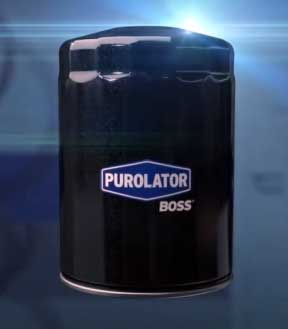
The Boss kept my oil clean, and the engine ran smoothly for 15,000 miles per change.
I cut one open after use (because I’m curious like that) and was impressed by how much gunk it trapped without clogging.
Mobil 1, on the other hand, shone on my coupe.
I love pushing it on twisty backroads, and the high flow rate kept the engine responsive.
I noticed better acceleration compared to the Boss, likely due to less flow restriction.
However, when I checked the oil after 12,000 miles, it was dirtier than I expected—not terrible, but not as pristine as with the Boss.
One thing both filters share is reliability. I’ve never had a leak, failure, or startup issue with either. The silicone anti-drain back valves are a godsend, especially on my older truck, which used to clatter with cheaper filters.
Also Read: Comparison of Baldwin And WIX Oil Filters.
When To Choose Purolator Boss?
The Boss is your pick if you:
- Drive a truck or SUV for towing or heavy loads.
- Live in dusty or extreme environments (think rural roads or deserts).
- Want the finest filtration possible to extend engine life.
- Prefer American-made products.
I’d recommend it for daily drivers, work vehicles, or anyone prioritizing longevity over outright performance. It’s overkill for a casual commuter car, but if you’re serious about engine protection, it’s worth the extra bucks.
When To Choose Mobil 1?
Mobil 1 is the way to go if you:
- Own a sports car or performance vehicle.
- Frequently drive at high RPMs or on racetracks.
- Want a balance of filtration and flow at a slightly lower price.
- Don’t mind slightly less fine filtration for better performance.
It’s perfect for enthusiasts like me who enjoy spirited driving or long highway trips. If your car sees more track days than dusty trails, Mobil 1’s your filter.
The Science Behind Filtration
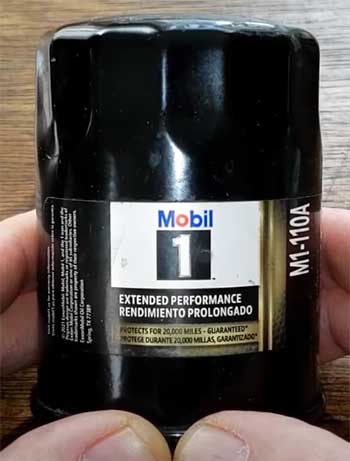
Let’s talk microns for a sec.
A micron is one-millionth of a meter, and oil filters are rated by how small a particle they can trap.
The Purolator Boss’s 99% efficiency at 20 microns means it catches more tiny particles than Mobil 1’s 99% at 30 microns.
In practical terms, the Boss is better at keeping your oil squeaky clean, which reduces wear on engine bearings and other components.
However, filtration isn’t everything. Flow rate matters too.
If a filter is too restrictive, it can starve your engine of oil, especially at high RPMs. Mobil 1’s design prioritizes flow, which is why it’s a favorite for performance cars.
I’ve read spec sheets from Mann+Hummel (who make both filters), and Mobil 1’s pressure drop is lower (1.75–2.0 psi) than the Boss’s, meaning less restriction.
- Cost Vs. Value
Price is always a factor. The Boss costs $12–$18, while Mobil 1 runs $10–$15. In my experience, the Boss’s superior filtration justifies the extra cost for trucks or high-mileage vehicles.
But for my coupe, Mobil 1’s performance edge and lower price make it a better deal. I’ve snagged Mobil 1 filters on sale for as low as $8, which feels like stealing.
Don’t skimp on filters, though. I once used a $5 no-name brand, and my oil turned black after 3,000 miles. Lesson learned: premium filters like these are an investment in your engine’s health.
- Community Insights and Myths
I’ve lurked on forums like BobIsTheOilGuy and Reddit’s r/MechanicAdvice, and opinions are heated. Some swear by Purolator for its filtration, while others love Mobil 1 for performance.
A common myth is that Mobil 1’s synthetic blend media is “better” than the Boss’s full-synthetic media. Not true—the Boss’s media is top-tier, but Mobil 1’s blend is optimized for flow.
Another myth: expensive filters are overrated. Wrong. Cutting open a used Boss and Mobil 1 showed me how much crud they trap compared to budget filters. The difference is night and day.
Also Read: Comparison of WIX And NAPA Gold Oil Filters.
Frequently Asked Questions (FAQ)
It depends on your needs. Purolator Boss excels for heavy-duty use and fine filtration, while Mobil 1 is tops for performance driving. Both are among the best.
Purolator One filters are made by Mann+Hummel, a German filtration giant, under the Purolator brand.
Purolator Boss filters are manufactured in Fayetteville, North Carolina, USA.
The Purolator Boss boasts 99% efficiency at 20 microns, while Purolator One reaches 99% at 17–25 microns, depending on the model.
Conclusion: Your Engine, Your Choice
You’re now armed with the knowledge to pick between Purolator Boss and Mobil 1. If your driving involves towing, extreme conditions, or a focus on engine longevity, the Boss is your best bet. Its filtration is unmatched, and it’s built like a tank.
If you crave performance, high RPMs, or a budget-friendly premium filter, Mobil 1’s flow and versatility make it a winner. Whichever you choose, you’re giving your engine the VIP treatment it deserves.
So, what’s it gonna be? Let me know what you decide!

